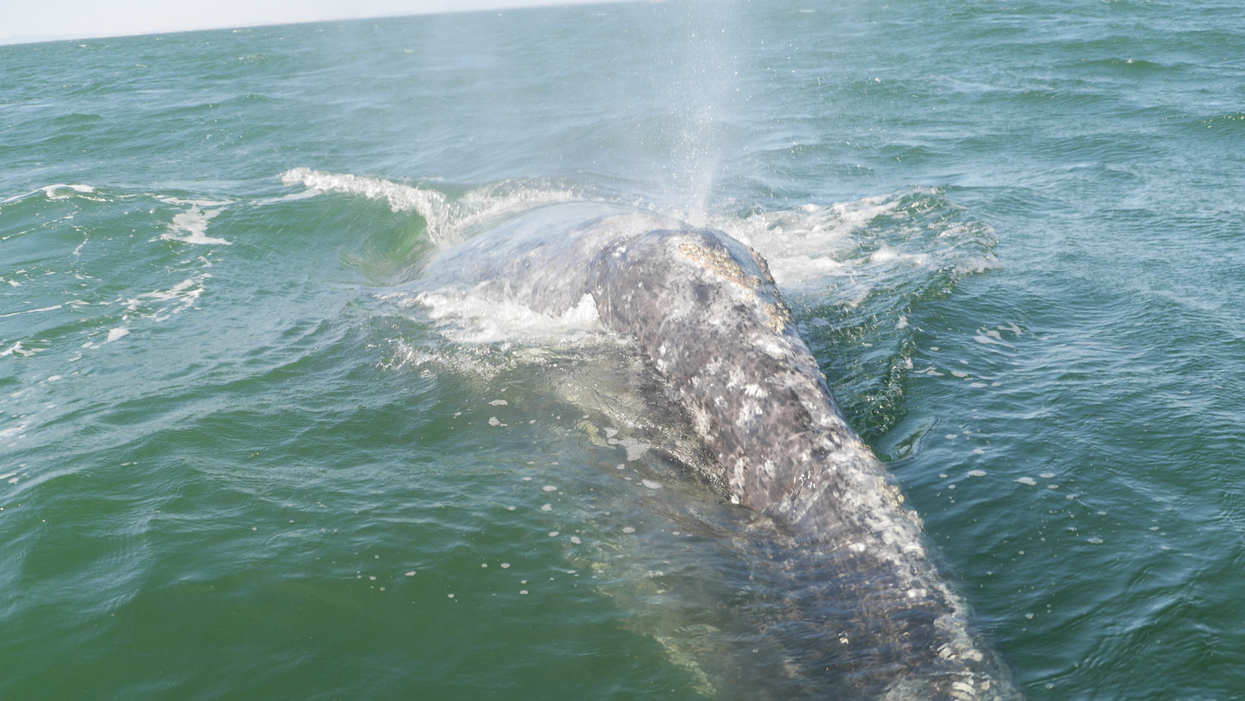Why Deep Sea Mining Threatens An End To Our Oceans -- And Us
The privilege of beholding the corals of Belize, the second largest reef system on earth, is a complete marvel that can never be taken for granted. The school of nine squid in perfect alignment that stared at us like transparent sentinels ,the green barracuda that floated as if in suspended animation, looking for prey. Those moments of utter awe were soul transformative not only for a child, but also for parents nurturing a young human to the ultimate reason to exist on this earth, to care for life.
Over the next few years, a battle was waged between environmentalists and those who saw dollars in the form of oil extraction in the reef. Thankfully on December 1, 2015, right after the Cop21 Paris Climate Accord, Belize made the tremendous decision to ban drilling outright -- and is working hard to restore coral. The same cannot be said for many other fragile parts of the world particularly the warming Arctic, where Russia has a near stranglehold of more than half the Arctic Ocean.
Sea weed from the Great Sargassum Atlantic Belt has started to wreak havoc on many of the beaches of the Caribbean, including Florida, over the last decade, often to the great annoyance of visitors. Christopher Columbus observed them over 500 years ago, Vast mats of these brown macroalgae growths, sometimes six feet tall, first starting polluting its waters in 2011 and have not only affected tourists but also turtles who could not lay their eggs in the sand. Stripping oxygen from the water and killing fish, these blooms of seaweed have been exacerbated by nitrogen pollution from industrial runoff from as far away as the Amazon, and even dust particles that contain phosphorus, iron, and nitrogen from the Sahara that have helped fertilize plankton growth.
While humanity has been pouring pollutants and plastic into the overheated oceans for decades, the newest industrial craze of undersea mining is the last human activity the oceans need if they are going to survive.
Is there really such as thing as sustainable seabed mining? The Deep Sea Mining Summit that just occurred in London may not question the manic rush for deep sea gold mining and other such operations. Under discussion is not the present health of the oceans, or their future .There will be assurances and promises and arguments that the technicians have a plan to make doubly sure little will be harmed. Those assurances have never worked. We are at an inflection point in time, where our civilization either does an about face in terms of pollution and the subjugation of the oceans -- or they die. By 2060, the fisheries of the world will have collapsed. It is perhaps no coincidence that England, the very country that started the Industrial Revolution, hosted The Deep Sea Mining Summit.
Scientists who have seen what has happened to the Barrier Reef, are crying. The bleaching events there have been devastating. The Chinese fishing fleets, of which there are 400 vessels, have been sent to the waters near the Galapagos and have pillaged the seas near the mythic islands. A true Darwinian nightmare.The list of horrors we have unleashed on the oceans is endless. Witness the Great Pacific Garbage Patch. Witness Fukushima and what radioactive elements have done to sea life in the Pacific .
As of 2021 there had been no commercial deep sea mining. But deep sea extraction of polymetallic nodules is considered by some to be the salvation of the electric car industry and other industries that run civilization. Some proclaim these resources could mitigate global warming . The chief executive of Florida’s Ocean Minerals says,” We desperately need substantial amounts of manganese, nickel, cobalt, and copper to build electric cars and power plants.” Is mining the ocean floor and potentially ravaging it the answer to our overheated planet? Helen Scales ,a marine biologist, sees the mining of the oceans as devastating : “ Mining means destruction and in this case it means the destruction of an ecosystem about which we know pathetically little.”
The HMS Challenger in 1872 was the first to discover these metal nodules in its round the world voyage.The nodules form around an object like a rock at the rate of one centimeter every million years. One zone of salvation or destruction -- however one looks at the argument -- is located between Mexico and Hawaii. Known as the Clarion-Clipperton Zone, it is four million square kilometers of seabed that will be explored, extracted, and very possibly exploited beyond recognition . At stake are six time more cobalt and three times more nickel than found anywhere on land. The question is what will be left of the remarkable sea floor and its life forms, most of which we know so very little about.
Twenty contracts have already been awarded to the International Seabed Authority by the UN, which is quite ironic considering the UN is supposed to be helping humanity avoid conflict . Some vessels will be able to collect 400 tons of nodules per hour, 100,000 tons in two weeks. Sediment plumes will disrupt and pollute ecosystems many miles away. Acidification of the sea bed from toxic metals will be largely unavoidable. Most pernicious of all, the biological pump which draws carbon from the atmosphere will also be adversely affected.
Marine biologists are sounding the alarm and with very good reason.Species of all kinds from sponges, to corals and worms and tiny creatures called tartigrades will be inevitably sacrificed, though many are new to science. Scales warns in her book The Brilliant Abyss that many creatures will quite simply be obliterated and lost forever before they are even known to science. The scale of the operations and size of the extractive machines used may well overwhelm near pristine environments for all time.
Pippa Howard, director at Fauna & Flora International warns, “The conclusions we have come to after extensive study could hardly be more troubling. From methane release to disruption of the ocean’s life-support systems and the destruction of unstudied ecosystems, the risks of deep sea mining are numerous and potentially disastrous.”
The oceans have already been stressed beyond recognition and denuded of so many species. The immune system of Earth's oceans is on life support . By 2100, half of all marine species may disappear. Some of the priceless eco-systems like the Barrier Reef are scarcely holding on to dear life. We may well be beyond our depths with respect to deep sea mining. We need an international moratorium now while we still have the oceans beating the original life pulse of the world.
The great prophetic writer Loren Eiseley divined truths unmatched in our time, revelations that science is only coming to understand very late in the game. “ Can it be, one inevitably wonders, that man is so linked to a prehensile, grasping hand giving him power over his environment- that he is unable to comprehend the intellectual life of a highly endowed creature from another domain such as the sea? “ On the eve of the Convention on Biological Diversity in Kunming, China, humanity has to make the right decisions. This is the last decade in which we can come to our senses. The plundering of the seas, cannot be allowed to match what we have done to the land. Or we will drown.









